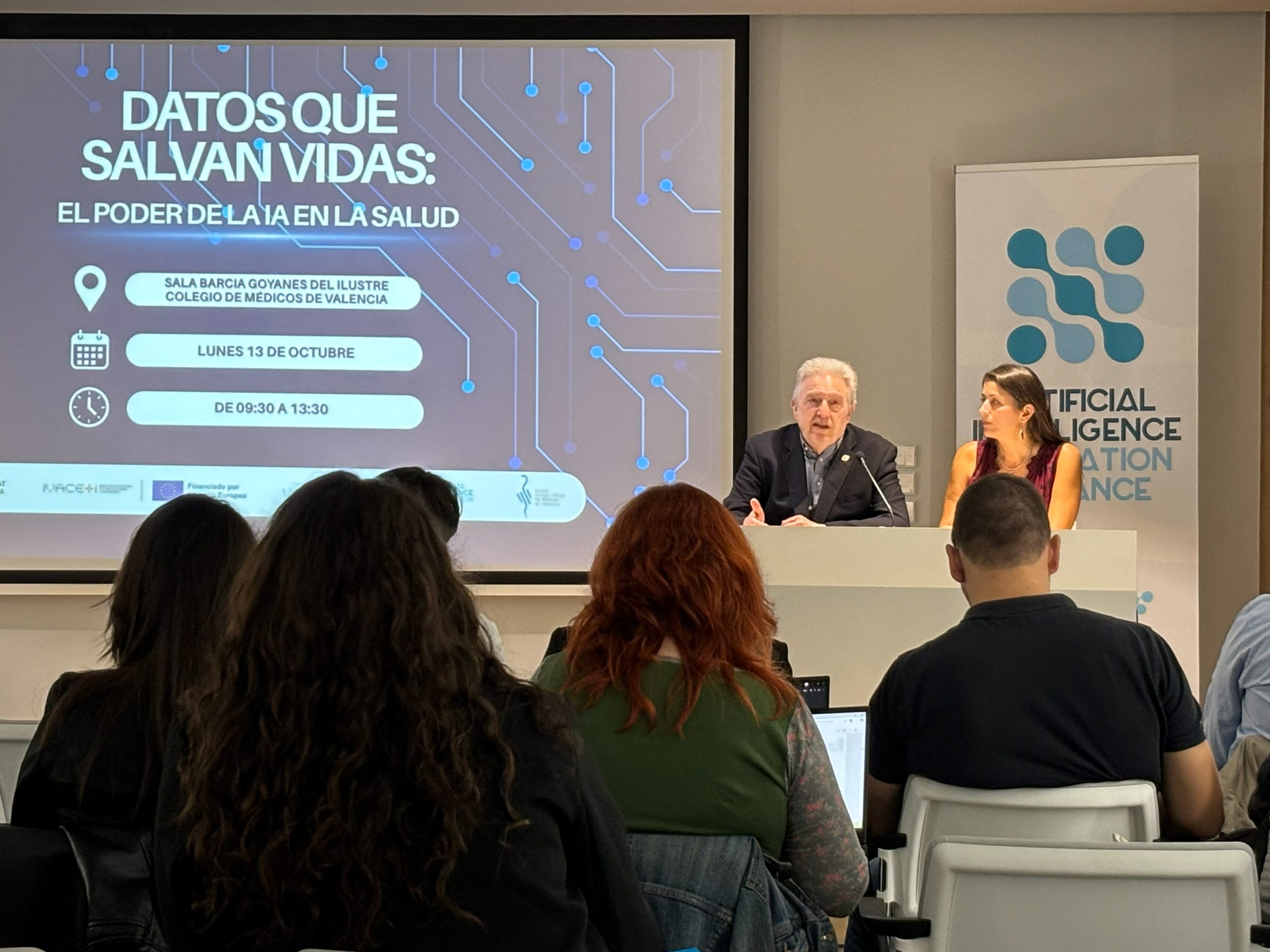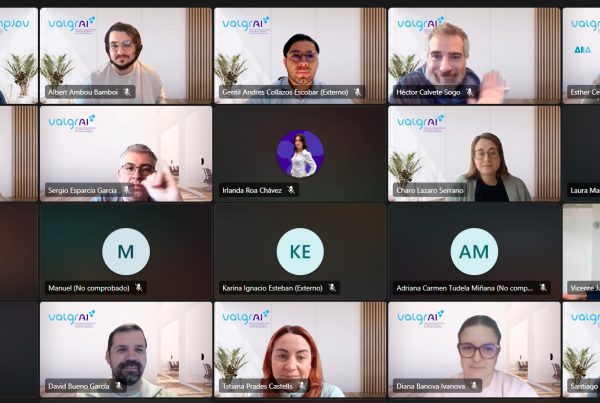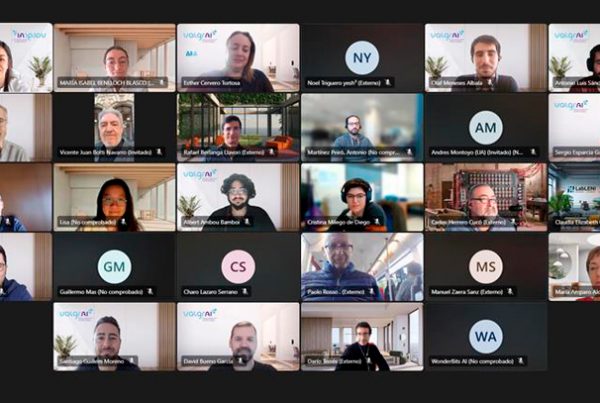Valencia, 14 October 2025. This morning, the Valencia Medical Association hosted the conference ‘Data that saves lives: the power of AI in healthcare,’ an event promoted by ValgrAI (Valencian Graduate School and Research Network of Artificial Intelligence) in which leading researchers and professionals demonstrated how artificial intelligence is transforming medicine, from diagnosis and rehabilitation to mental health and clinical data management.
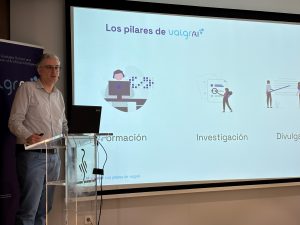
Next, Juan M. García-Gómez, director of the Biomedical Data Science Lab (BDSLab) at the UPV, presented projects involving massive data analysis that enable personalised treatments and improved medical care. He discussed various projects in which data science is used to analyse large volumes of health information—from mortality records to medical images and data collected by mobile phones—to improve diagnoses, optimise hospital resources, and personalise treatments in areas such as oncology, chronic diseases, and emergency care.
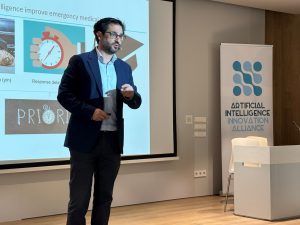
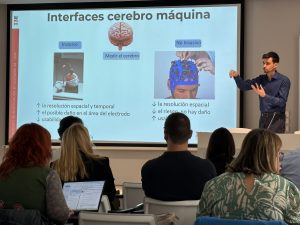
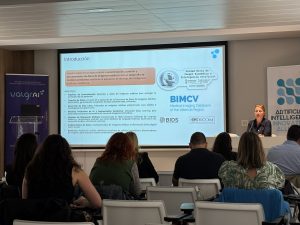
The presentation ‘AI at the service of therapists: enhancing clinical practice in mental health’, given by Aarón Picó Pascual from the Valencian Research Institute for Artificial Intelligence (VRAIN) at the UPV, showed how artificial intelligence can become an ally for mental health professionals. Picó highlighted that, given the global increase in psychological problems and difficulties in accessing care, AI-based tools are being developed—such as apps, chatbots, and session analysis systems—to support therapeutic work, improve patient follow-up, and reduce the administrative burden on professionals.
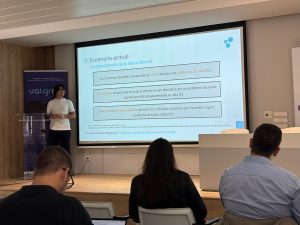
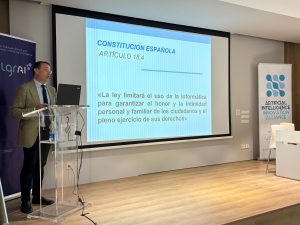
More information:
Esther Cerveró
614161052
